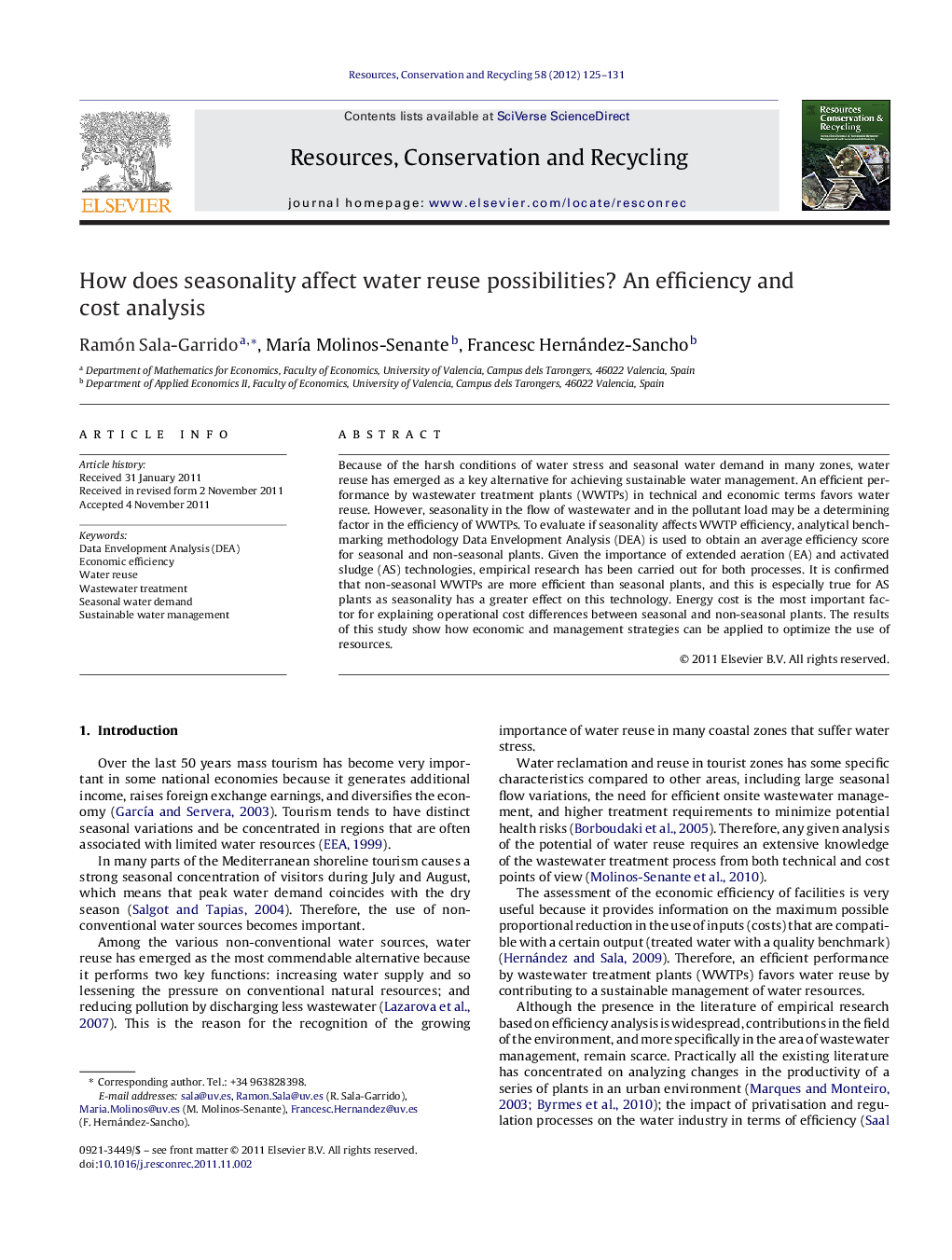| Article ID | Journal | Published Year | Pages | File Type |
|---|---|---|---|---|
| 1063486 | Resources, Conservation and Recycling | 2012 | 7 Pages |
Because of the harsh conditions of water stress and seasonal water demand in many zones, water reuse has emerged as a key alternative for achieving sustainable water management. An efficient performance by wastewater treatment plants (WWTPs) in technical and economic terms favors water reuse. However, seasonality in the flow of wastewater and in the pollutant load may be a determining factor in the efficiency of WWTPs. To evaluate if seasonality affects WWTP efficiency, analytical benchmarking methodology Data Envelopment Analysis (DEA) is used to obtain an average efficiency score for seasonal and non-seasonal plants. Given the importance of extended aeration (EA) and activated sludge (AS) technologies, empirical research has been carried out for both processes. It is confirmed that non-seasonal WWTPs are more efficient than seasonal plants, and this is especially true for AS plants as seasonality has a greater effect on this technology. Energy cost is the most important factor for explaining operational cost differences between seasonal and non-seasonal plants. The results of this study show how economic and management strategies can be applied to optimize the use of resources.
► Efficiency assessment as a tool to minimize operation costs of WWTPs. ► Quantification of the economic impact resulting from seasonality. ► Energy cost is the factor that most contributes in efficiency differences between seasonal and non-seasonal WWTPs. ► Seasonal factor has a greater effect on activated sludge plants than on extended aeration plants.
